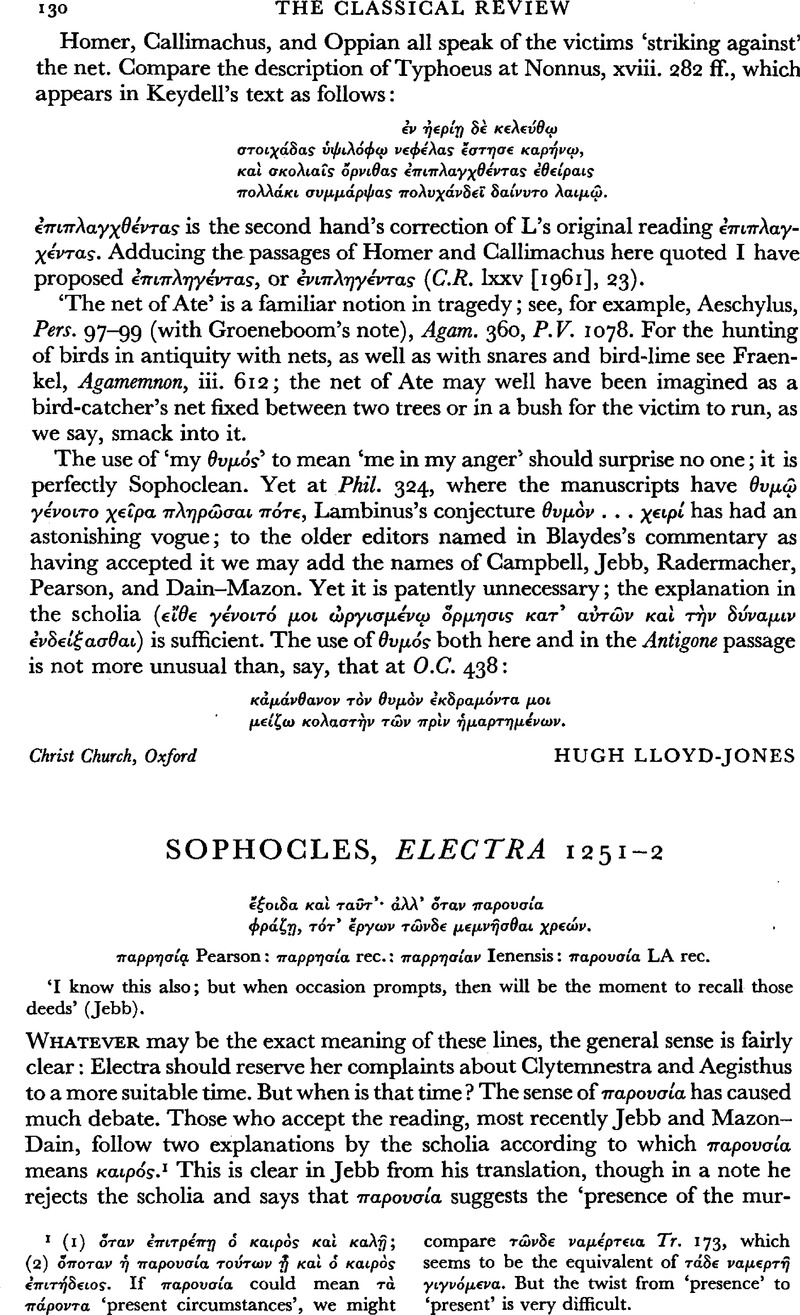No CrossRef data available.
Published online by Cambridge University Press: 27 February 2009

page 130 note 1 (1) ὅταν ⋯πιτρ⋯πῃ ⋯ καιρ⋯ς κα⋯ καλῇ; (2)ὅποταν ⋯ παρουσ⋯α το⋯των ᾖ κα⋯ ⋯ καιρ⋯ς ⋯πιτ⋯δειος. If παρουσ⋯α could mean τ⋯ π⋯ροντα ‘present circumstances’, we might compare τ⋯νδε ναμ⋯ρτεια Tr. 173, which seems to be the equivalent of τ⋯δε ναμερτ⋯ γιγν⋯μενα. But the twist from ‘presence’ to ‘present’ is very difficult.
page 131 note 1 Pearson's, discussion of the passage is the fullest which I know, C.Q. xxiii (1929), 88–89.Google Scholar
page 131 note 2 The suggestion by Bruhn that παρουσ⋯α means ‘possibility (of speaking freely)’, i.e. ⋯ξουσ⋯α, is equally unprecedented.
page 131 note 3 Pearson, loc. cit. 88, objects that such a sense is inappropriate. For my part I am quite unable to see how saying ‘When the criminals are present, we must remember their crimes’, is inconsistent with ‘Orestes is attempting to persuade Electra to reserve her complaints’, which according to Pearson is the sense required. The meaning of παρουσ⋯α does not affect the point.
page 131 note 4 We may compare the manner in which other abstracts are used to isolate a quality, the ‘devotion’ of the Paedagogus with ὐπηρ⋯τημα ποδ⋯νEl. 1357, the ‘loyalty’ of Neoptolemus and his crew by οἰκο⋯ρημα ξ⋯νων Ph. 867–8; cf. ξυνουσ⋯αι θηρ⋯ν ⋯ρε⋯ων ibid. 936–7, the ‘beauty of Deianeira’ ⋯μμα ν⋯μφας Tr. 527, the ‘movement’ of chariot wheels τροχ⋯ν β⋯σεις El. 718. On the history of such expressions see Rose, H. J., ‘On an Epic Idiom in Aeschylus’, Eranos, xlv (1947), 88 ff.Google Scholar, and Professor L. J. Richardson's reply, ibid, liv (1956), 1–6.
page 132 note 1 Professor T. B. L. Webster, who kindly discussed the passage with me, suggests that ἔργων may have this sense, which it bears at line 22.